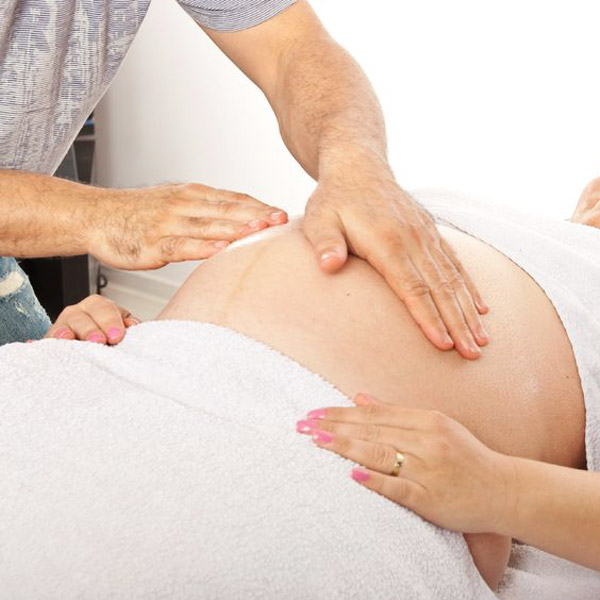
Physiotherapy in pregnancy
Pregnancy is undoubtedly a really exciting time for women but it can occasionally bring a few anxieties too.
As an expectant mother you may find yourself bombarded with information that is usually helpful, but can sometimes feel confusing or conflicting.
The team at swissphysio will help to transform your pregnancy into the most relaxed and pleasant of times by offering you a range of treatments and advice especially focused on the following common issues.
Even regular tasks such as sitting, walking, standing and working can be difficult when pregnant. Almost all women experience musculoskeletal discomfort during pregnancy, and as many as 25% of all pregnant women experience temporarily disabling ones. This is due to the tremendous changes undergone by the body during any healthy pregnancy.
Around 75% of pregnant women will suffer with back pain during their pregnancy. Most of the time the pain is pregnancy related and symptoms will subside once the baby has been born but there is much that physiotherapists can do to ease the discomfort.
For all the below conditions we will first thoroughly assess you to identify the cause(s) of the discomfort and then discuss our findings and our treatment suggestions with you.
This usually include gentle mobilisation of muscles and joint, active and passive exercises to improve the muscle balance and the ability of support the growing weight of the baby. We apply Kinesio tape to brace the back and pelvis and give you a pleasant stable and supported sensation.
Acupuncture given by an experienced therapist fully trained in Traditional Chinese Medicine might complement the physiotherapy treatment as well as anti & post natal Pilates classes, Pregnancy and post Pregnancy Massages, Reflexology and Reiki.
Ante-natal physiotherapy:
Caused by a shift in the mother’s centre of gravity as the baby grows. Neck pain and headaches due to changes in posture.
The main symptoms are pain in your pubic area, groin, the inside of your thighs and sometimes in your lower back and hips. The pain is worse when you walk or move and climbing stairs is especially painful. Getting in and out of the car or turning in bed is also painful. You might hear a clicking sound when you walk and feel as though the bones are grinding together. Opening your legs is difficult and painful.
Tightness and pain in the hamstrings and heel cords caused by a flattening of the feet.
Arm pain or tingling caused by nerve compression associated with an increased chest diameter and water retention.
A diastasis recti looks like a ridge, which runs down the middle of the belly area. It stretches from the bottom of the breastbone to the belly button, and increases with muscle straining.
Diastasis recti is commonly seen in women who have multiple pregnancies, because the muscles have been stretched many times. Extra skin and soft tissue in the front of the abdominal wall may be the only signs of this condition in early pregnancy. In the later part of pregnancy, the top of the pregnant uterus is often seen bulging out of the abdominal wall. Diastasis recti usually persists long after the woman gives birth. Exercise may help improve the condition. Umbilical hernia may occur in some cases. If pain is present, surgery may be needed.
Stress & urge incontinence during pregnancy and after delivery due to strained pelvic muscles.
Post-natal physiotherapy:
Women commonly experience muscle and joint pain postnatally and the following are contributing factors:
What do we treat?
- lower back pain
- thoracic spine pain
- neck and upper shoulder pain and stiffness
- tendanitis
- sacroiliac joint dysfunction
- pelvic floor muscle weakness and stress incontinence
